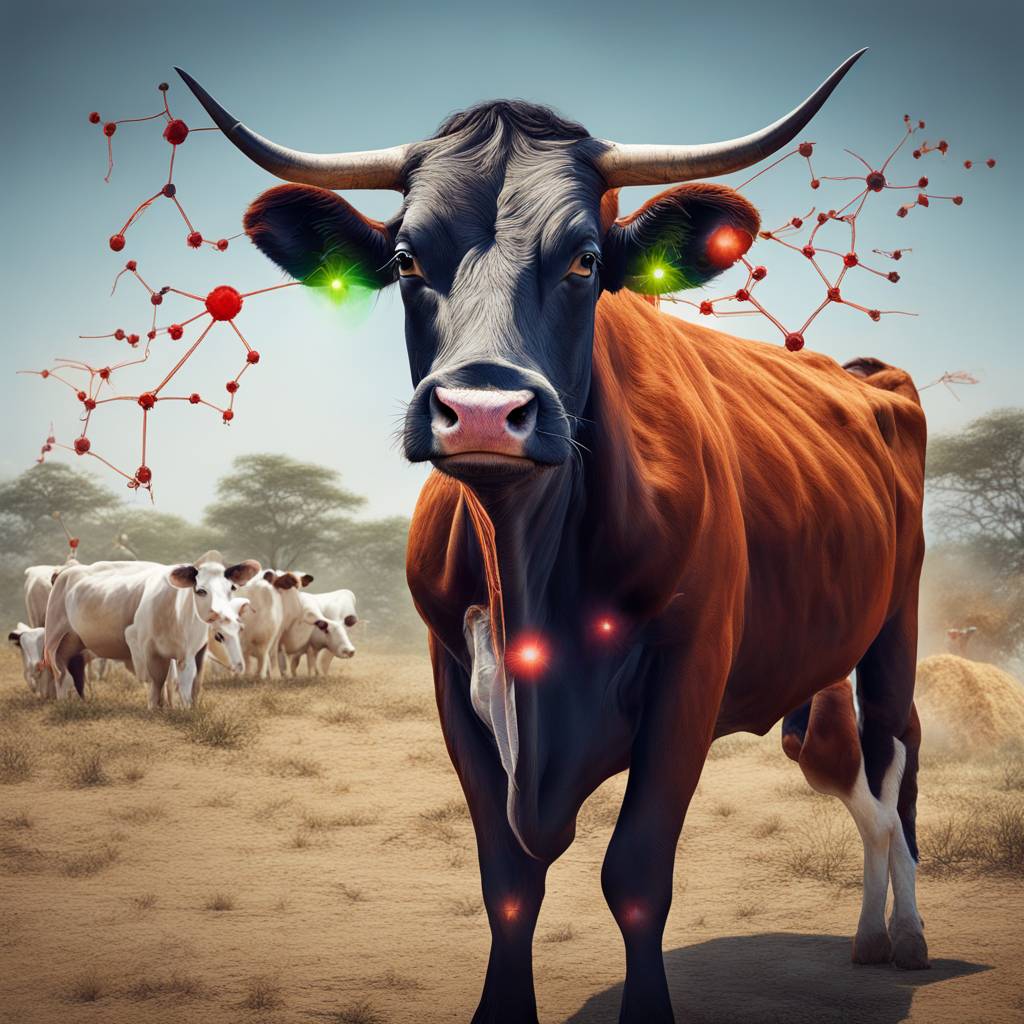New research led by the University of Cambridge and Penn State University has found that vaccination can significantly reduce the severity and spread of bovine tuberculosis (TB) in dairy herds. The study, published in the journal Science, shows that BCG-vaccinated cattle infected with TB are 89% less likely to spread the disease to other cattle. This indirect effect of the vaccine, beyond its direct protective effect, has not been measured before. TB in cattle is a major concern worldwide, causing economic costs and health impacts. The spillover of zoonotic TB infections from livestock to humans has been estimated to account for around 10% of human TB cases.
The study, conducted in Ethiopia, examined the effectiveness of the Bacillus Calmette-Guérin (BCG) vaccine in protecting both vaccinated and unvaccinated cattle from TB transmission. Results showed that vaccinated cows developed fewer visible signs of TB and were significantly less infectious to others compared to unvaccinated cows. Using livestock census and movement data from Ethiopia, researchers developed a transmission model that suggests routine vaccination of calves within the dairy sector could reduce the transmission of TB, putting herds on a pathway towards TB elimination.
Ethiopia, with the largest cattle herd in Africa and a growing dairy sector, was chosen as a representative of low- and middle-income countries facing challenges in controlling bovine TB. According to Professor Abebe Fromsa from Addis Ababa University, vaccination of cattle has the potential to provide significant benefits in regions where TB control programs are lacking. Traditional methods of controlling TB, such as intensive testing and slaughtering of infected animals, are not always feasible due to economic and social reasons. By vaccinating cattle, researchers hope to protect both animals and humans from the impacts of this devastating disease.
Professor James Wood from the University of Cambridge emphasized the importance of vaccination in reducing TB rates in countries like the United Kingdom, Ireland, and New Zealand. Despite ongoing control programs, these countries continue to face economic pressures from bovine TB. The new research provides support for the potential benefits of cattle vaccination in reducing disease transmission within herds. By implementing vaccination programs, researchers aim to reduce the burden of disease and eliminate TB in cattle populations, ultimately benefiting both animal welfare and public health.
The study highlights the significant impact of BCG vaccination in reducing TB transmission in dairy herds and protecting both cattle and humans from the consequences of this infectious disease. With TB remaining endemic in many countries and causing substantial economic costs, vaccination presents a promising strategy for controlling and eliminating the disease. By focusing on vaccination as a preventative measure, researchers aim to reduce the burden of TB in cattle populations and mitigate the risk of zoonotic transmission to humans. The findings provide valuable insights into the potential benefits of vaccination in tackling bovine TB in low- and middle-income countries where control programs are lacking.


